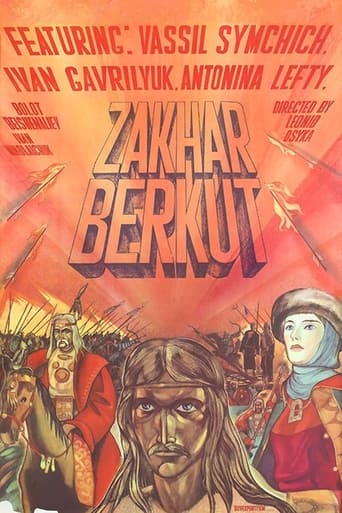necrodemion
This film is based on the classic novel of the same name by writer Ivan Franko, one of the most famous figures of Ukrainian literature.It is set during the 1200s and the invasion of the medieval Ukrainian-Russian state of Rus' by Chengis Khan's Golden Horde. Due to its having been produced during the Soviet era, the story's aspect of class-conflict between the "heroic" peasantry and the "decadent" noble seems particularly emphasized here. And there also appears to be a certain cultural bias as it seems the filmmakers go out of their way to emphasize the "barbaric" non-Christian (in this case Shamanistic) "heathen" aspect of the horde, an image which prevails in Ukrainian cinema to this day.But despite these flaws, the film still gives us a very interesting and rare glimpse into the life in Ukraine in this era. The cinematography and costuming are quite well done, and the music in particular seems to add greatly to the sense of history and ancient splendour. While not as good as Paradjanov's "Shadows of Forgotten Ancestors", it is still well worth seeing when it turns up from time to time at art houses.It is available on NTSC format video from a company called Ukrainian Entertainment in New York City, but I cannot recommend this version as it is an extremely poorly panned and scanned version of a very faded print which loses all of the richly colourful wide-screen beauty I enjoyed in the theatre, and it is also in Ukrainian only with no subtitles. I hope that someday another company may issue a wide-screen, subtitled version so that this flawed but interesting film may receive the wider audience it deserves.
